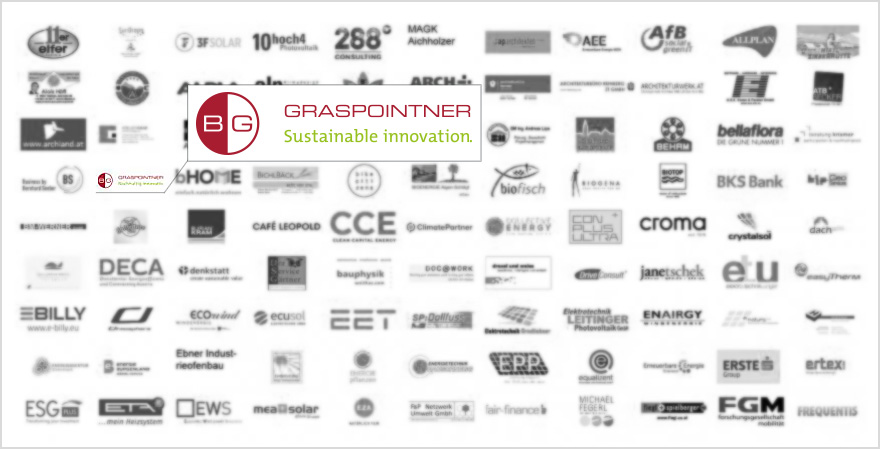GO SOLAR: A PETITION BY THE BUSINESS COMMUNITY
Let the sunshine in!
GO SOLAR: A PETITION BY THE BUSINESS COMMUNITY
Let the sunshine in!

<p><strong>People are realizing the urgency</strong><br>BG-Graspointner was party to a climate petition to policy makers by the Austrian business sector already back in 2017 when the country was in the process of forming a new government coalition. In interviews in the run-up to the elections and afterward, the issue of climate protection was scarcely addressed. But today such a situation is inconceivable, as decades of ecological activism are slowly showing impact. Thus perseverance is key right now.</p>
<p><strong>The specific demands in 2019</strong></p>
<ul><li>Eliminate the solar power self-consumption tax</li><li>Eliminate the solar power subsidy cap</li><li>Cut unnecessary bureaucracy for photovoltaic system installation</li><li>Greater availability of support and advice</li><li>Better marketing opportunities for regional solar power </li><li>Environmentally compatible energy transition with rooftop photovoltaic systems rather than placement in nature conservation areas</li></ul><p> </p>
<p><strong>Why focus on solar right now?</strong><br>Campaign initiator Johannes Wahlmüller of GLOBAL 2000 cites three reasons why solar is the primary issue right now.</p>
In our last petition we demanded 100 percent renewable energy usage by the year 2030. Widespread reliance on solar energy would make this goal attainable.
<p>Wahlmüller says that a coherent plan is furthermore required because current policy is more symbolic than substantive in nature. He also notes that it is relatively easy for companies to switch over to solar energy, because it only requires a photovoltaic system.</p><p> </p><p><strong>Too many barriers for solar</strong><br>The conditions for such advances to be made are anything but favorable at the moment, however, as policy makers have not created appropriate incentives. One such incentive would be the elimination of the self-consumption tax. While there is now an exemption for up to 25,000 kilowatt hours, this threshold is quickly exceeded. Above the threshold, a charge of 1.5 cents per kilowatt hour applies. Wahlmüller also believes there is too much bureaucracy, such as for obtaining a system operation permit. Those interested in increasing the size of their system may risk losing subsidies.</p><p> </p><p><strong>Exciting possibilities in a serious situation</strong><br>GLOBAL 2000 and WWF Austria presented their petition to all parties ahead of the new elections held in late September so as to ensure that the issue remains on the table regardless of who the winners turned out to be. Which was a sound move, for in contrast to elections, in this respect there is no choice left but to act. The <a href="https://www.global2000.at/klimaschutzappell">solar petition</a> has been signed by 254 companies, which is a lot, yet there is still major resistance to be overcome. And we will remain committed to pushing forward on this issue, because the energy transition—a key element in climate policy—cannot be achieved without government involvement to create incentives.</p><p> </p><p><strong>BG-Graspointner taking action</strong><br>here is a lot of talk going on everywhere, but we are taking action. The planned solar array for the roof of our plant is now in operation, generating solar energy to power our production. An informative blog article with more details will be posted soon.</p><p><br>Start today utilizing renewable energies in your construction projects! Our sustainable material FILCOTEN HPC is made exclusively using green electricity. </p>

